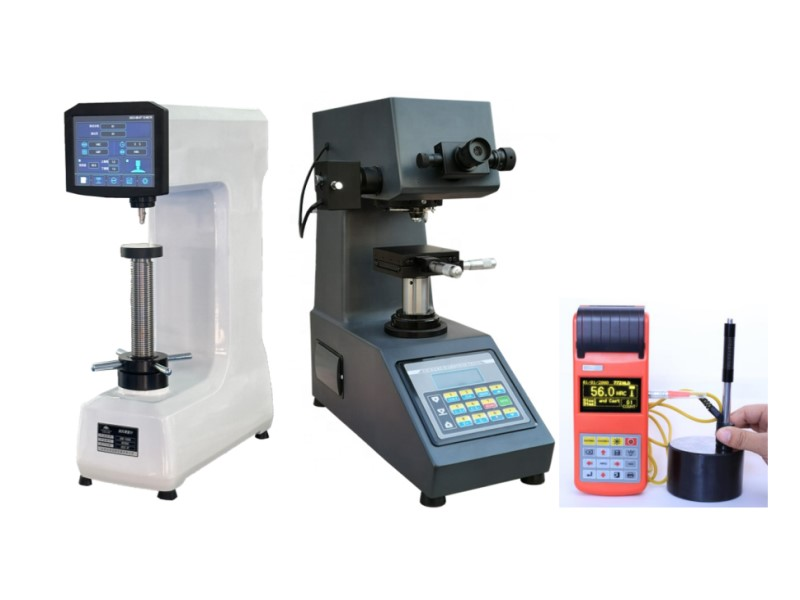
1.Rockwell Knoop Vickers hardness test method for aluminum nitride ceramics
Since ceramic materials have a complex structure, are hard and brittle in nature, and have small plastic deformation, the commonly used hardness expression methods include Vickers hardness, Knoop hardness and Rockwell hardness. Shancai Company has a wide variety of hardness testers, with different hardness tests and various related hardness testers.
The following standards can be used as reference:
GB/T 230.2 Metallic Materials Rockwell Hardness Test:
There are many Rockwell hardness scales, and ceramic materials generally use HRA or HRC scales.
GB/T 4340.1-1999 Metal Vickers hardness test and GB/T 18449.1-2001 Metal Knoop hardness test.
The Knoop and Micro-Vickers measurement methods are basically the same, the difference is the different indenters used.
It is worth noting that due to the special nature of the product, we can remove invalid Vickers indentations according to the state of the indentation during measurement to obtain more accurate data.
2.Testing methods for metal rolling bearings
According to the hardness test methods for steel and nonferrous metal bearing parts specified in JB/T7361-2007, there are many test methods according to the workpiece process, all of which can be tested with a Shancai hardness tester:
1)Vickers hardness testing method
Generally, surface hardened bearing parts are tested by the Vickers hardness testing method. Attention should be paid to the surface finish of the workpiece and the selection of the test force.
2)Rockwell hardness testing method
Most Rockwell hardness tests are conducted using the HRC scale. Shancai Rockwell hardness tester has accumulated 15 years of experience and can basically meet all needs.
3)Leeb hardness testing method
The Leeb hardness test can be used for bearings that are installed or difficult to disassemble. Its measurement accuracy is not as good as that of a benchtop hardness tester.
This standard is mainly applicable to the hardness test of steel bearing parts, annealed and tempered bearing parts and finished bearing parts as well as non-ferrous metal bearing parts.
Post time: Sep-27-2024


